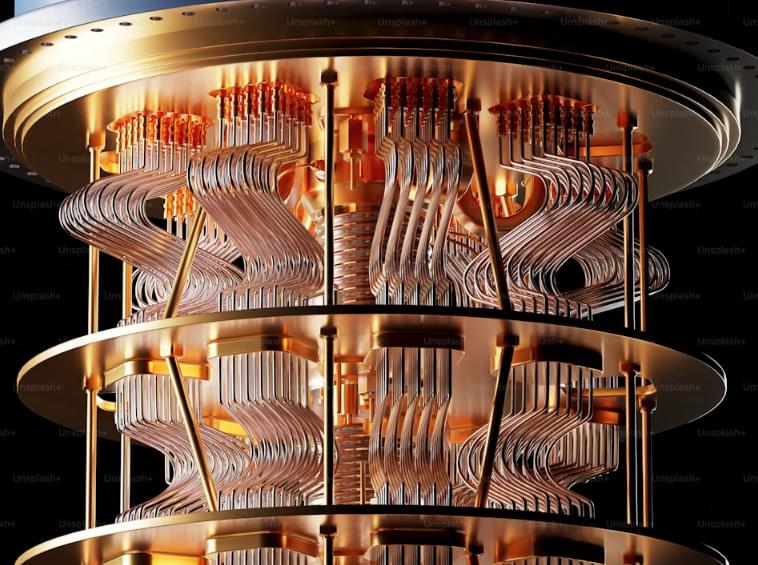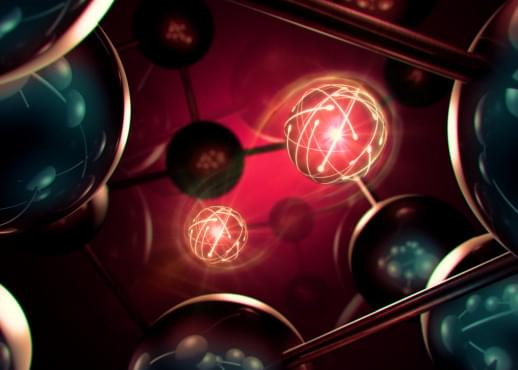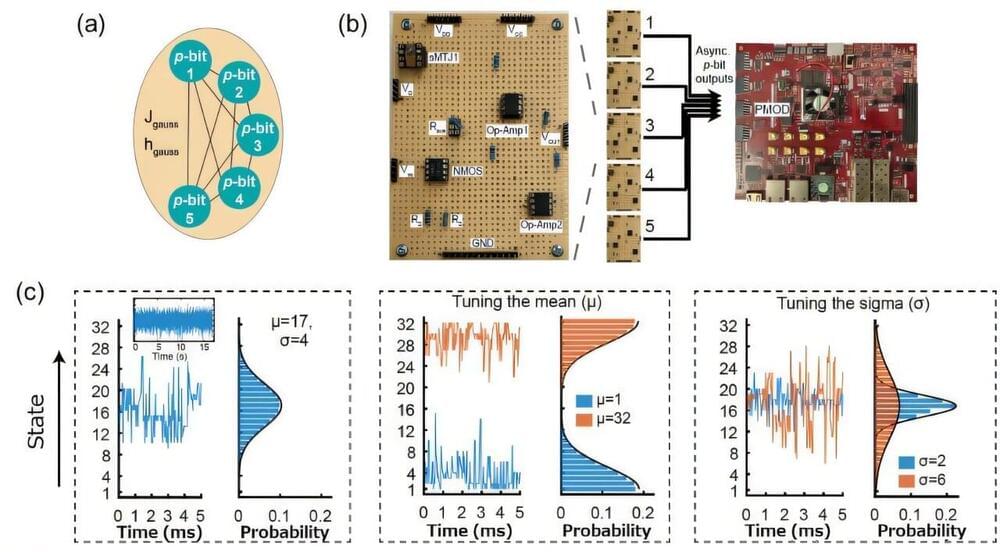Archive for the ‘quantum physics’ category: Page 11
Dec 12, 2024
China develops record-breaking 504-qubit quantum computer Tianyan-504
Posted by Omuterema Akhahenda in categories: computing, quantum physics
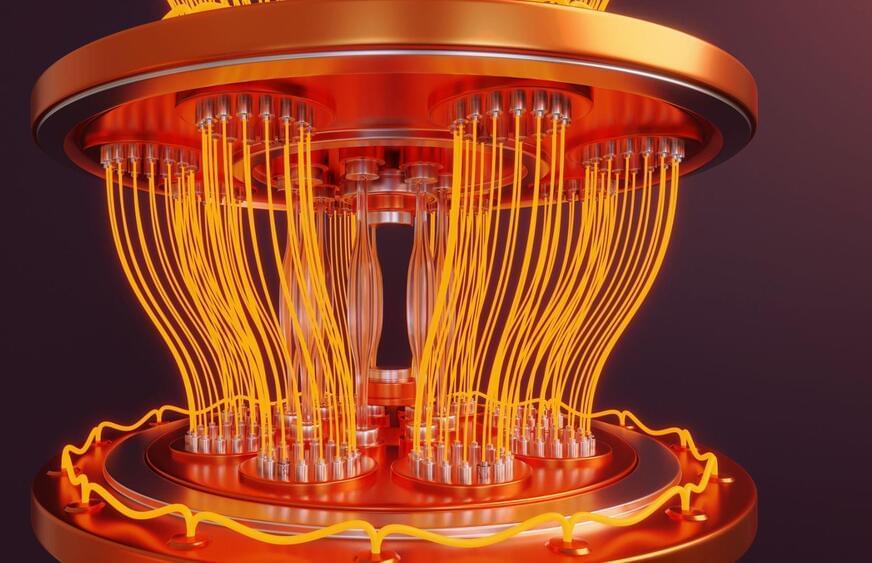
China has reached a new milestone in quantum computing with the development of Tianyan-504, a powerful 504-qubit quantum computer.
The Tianyan-504 quantum computer was developed through collaboration between the China Telecom Quantum Group (CTQG), the Center for Excellence in Quantum Information and Quantum Physics under the Chinese Academy of Sciences, and QuantumCTek, a quantum technology company based in Anhui Province.
Continue reading “China develops record-breaking 504-qubit quantum computer Tianyan-504” »
Dec 12, 2024
Quantum algorithms can break generative AI bottlenecks
Posted by Shubham Ghosh Roy in categories: chemistry, health, information science, quantum physics, robotics/AI, sustainability
Finding a reasonable hypothesis can pose a challenge when there are thousands of possibilities. This is why Dr. Joseph Sang-II Kwon is trying to make hypotheses in a generalizable and systematic manner.
Kwon, an associate professor in the Artie McFerrin Department of Chemical Engineering at Texas A&M University, published his work on blending traditional physics-based scientific models with experimental data to accurately predict hypotheses in the journal Nature Chemical Engineering.
Kwon’s research extends beyond the realm of traditional chemical engineering. By connecting physical laws with machine learning, his work could impact renewable energy, smart manufacturing, and health care, outlined in his recent paper, “Adding big data into the equation.”
Dec 12, 2024
A Dive into the Thermodynamic Aspects of Quantum Computation
Posted by Shubham Ghosh Roy in categories: computing, employment, quantum physics
It is quite conventional that the working of classical computers is affected immensely by heat and one might have come across this situation in their lives when their computer failed to function properly due to excessive heating.
But what about quantum computers? Do thermodynamical factors influence the workings of a quantum computing device? Well, the answer is yes, quantum computers operate using quantum bits or qubits that essentially are in a superposed state exchanging information in binary code. An interesting fact about qubits is that they not only exchange information using 0 and 1 but also intermediate values between 0 and 1. These qubits are very sensitive, in that excessive heat generation could cause work-related defects which in a sense can cause harm to the device as a whole. Another crucial point is that in order to retrieve significant information from the qubit system, the associated quantum states must be dismantled and this could possibly impact the quantum system heavily in a negative manner as the process would be exothermic.
In recent work, physicists have investigated the thermodynamic effects caused by superconducting quantum systems [1]. The method involves the employment of a Josephson junction which essentially operates on the Josephson effect, an example of macroscopic quantum phenomena wherein a supercurrent flows between two superconductors placed end-to-end or in close proximity to each other. The principal usability of a Josephson junction is to store quantum information. Using superconductors is a plus because it helps enhance the efficiency of the qubits.
Dec 12, 2024
Pete Shadbolt at MIT EmTech: Building the World’s First Useful Quantum Computer
Posted by Dan Breeden in categories: quantum physics, supercomputing
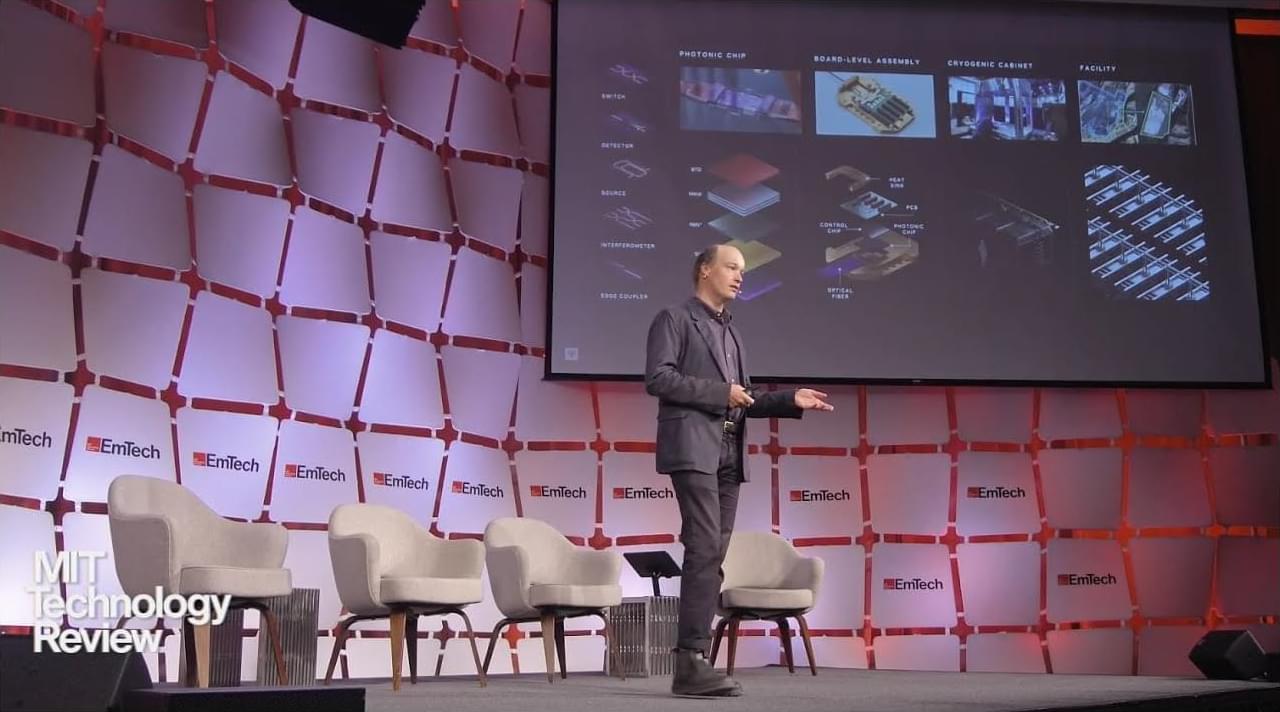
Quantum computers hope to excel at solving problems that are too large, complex, or cumbersome for even the most powerful supercomputers, but many hurdles remain before they can be reliably put to commercial use. Here, we share an update on PsiQuantum’s approach, and recent progress towards useful, large-scale machines.
PsiQuantum co-founder \& Chief Scientific Officer Pete Shadbolt presents at the 2024 MIT EmTech conference in Cambridge, MA.
Dec 12, 2024
Crafting Qubits: Harnessing Quantum Mechanics for Computation
Posted by Dan Breeden in categories: computing, quantum physics
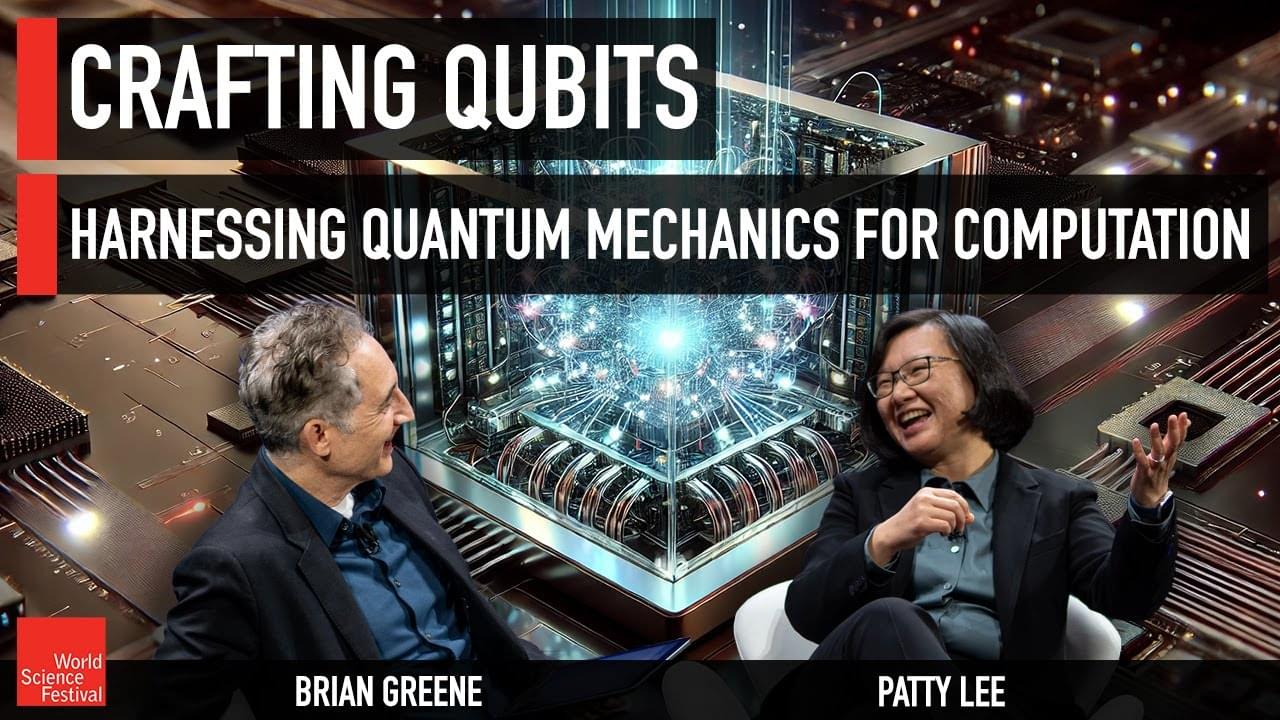
How do we actually create and manipulate qubits, essential for realizing quantum computation? Chief Scientist of Hardware Technology Development at Quantinuum, Patty Lee, joins Brian Greene to discuss various quantum strategies, their achievements to date and pathways forward.
This program is part of the Big Ideas series, supported by the John Templeton Foundation.
Continue reading “Crafting Qubits: Harnessing Quantum Mechanics for Computation” »
Dec 12, 2024
Google Says It Appears to Have Accessed Parallel Universes
Posted by Dan Breeden in categories: computing, cosmology, quantum physics
Google argued that its new uber-powerful quantum computer is so fast that it may have tapped a parallel universe.
Dec 12, 2024
Google’s New Quantum Chip SHOCKED THE WORLD — 10 Million Times More Powerful!
Posted by Dan Breeden in categories: biotech/medical, quantum physics, robotics/AI, supercomputing

Google’s new quantum computing chip, Willow, has set a groundbreaking standard by achieving unparalleled speed and precision, outperforming supercomputers in specific tasks by millions of times. This revolutionary chip enhances quantum error correction, making scalable quantum systems a reality and unlocking new possibilities for artificial intelligence, scientific research, and real-world problem-solving. Willow’s success marks a major milestone in the integration of quantum computing and AI, driving innovation across industries.
Don’t let AI leave you behind — get updates at https://airevolution.cc.
Continue reading “Google’s New Quantum Chip SHOCKED THE WORLD — 10 Million Times More Powerful!” »
Dec 12, 2024
Welcome to The Quantum Memory Matrix — Hypothesis Offers New Insight Into Black Hole Information Paradox
Posted by Shubham Ghosh Roy in categories: computing, cosmology, mathematics, quantum physics
A new hypothesis suggests that the very fabric of space-time may act as a dynamic reservoir for quantum information, which, if it holds, would address the long-standing Black Hole Information Paradox and potentially reshape our understanding of quantum gravity, according to a research team including scientists from pioneering quantum computing firm, Terra Quantum and Leiden University.
Published in Entropy, the Quantum Memory Matrix (QMM) hypothesis offers a mathematical framework to reconcile quantum mechanics and general relativity while preserving the fundamental principle of information conservation.
The study proposes that space-time, quantized at the Planck scale — a realm where the physics of quantum mechanics and general relativity converge — stores information from quantum interactions in “quantum imprints.” These imprints encode details of quantum states and their evolution, potentially enabling information retrieval during black hole evaporation through mechanisms like Hawking radiation. This directly addresses the Black Hole Information Paradox, which highlights the conflict between quantum mechanics — suggesting information cannot be destroyed — and classical black hole descriptions, where information appears to vanish once the black hole evaporates.
Dec 12, 2024
Researchers develop spintronics platform for energy-efficient generative AI
Posted by Saúl Morales Rodriguéz in categories: information science, particle physics, quantum physics, robotics/AI
Researchers at Tohoku University and the University of California, Santa Barbara, have developed new computing hardware that utilizes a Gaussian probabilistic bit made from a stochastic spintronics device. This innovation is expected to provide an energy-efficient platform for power-hungry generative AI.
As Moore’s Law slows down, domain-specific hardware architectures—such as probabilistic computing with naturally stochastic building blocks—are gaining prominence for addressing computationally hard problems. Similar to how quantum computers are suited for problems rooted in quantum mechanics, probabilistic computers are designed to handle inherently probabilistic algorithms.
These algorithms have applications in areas like combinatorial optimization and statistical machine learning. Notably, the 2024 Nobel Prize in Physics was awarded to John Hopfield and Geoffrey Hinton for their groundbreaking work in machine learning.
